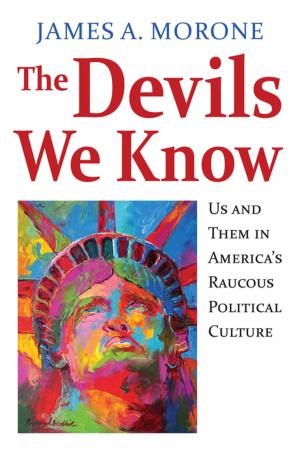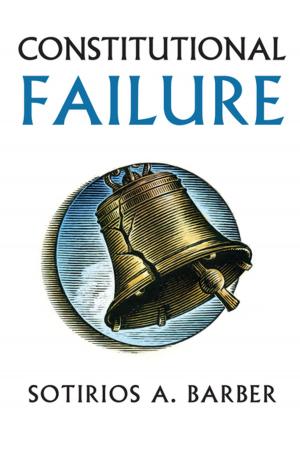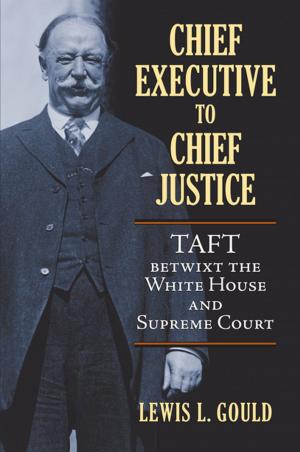Punitive War
Confederate Guerrillas and Union Reprisals
Nonfiction, History, Military, Strategy, Americas, United States, Civil War Period (1850-1877)| Author: | Clay Mountcastle | ISBN: | 9780700626564 |
| Publisher: | University Press of Kansas | Publication: | April 20, 2018 |
| Imprint: | University Press of Kansas | Language: | English |
| Author: | Clay Mountcastle |
| ISBN: | 9780700626564 |
| Publisher: | University Press of Kansas |
| Publication: | April 20, 2018 |
| Imprint: | University Press of Kansas |
| Language: | English |
Through widespread and relentless surprise attacks and ambushes, Confederate guerrillas drove Union soldiers and their leaders to desperation. Confederate cavalrymen engaged in hit-and-run tactics; autonomous partisan rangers preyed on Federal railroads, telegraph lines, and supply wagons; and civilian bushwhackers waylaid Union pickets. Together, all of these actions persuaded the Union to wage an increasingly punitive war.
Clay Mountcastle presents a new look at the complex nature of guerrilla warfare in the Civil War and the Union Army's calculated response to it. He examines guerrilla attacks and Federal responses in a number of operational theaters to show how the problem grew throughout the South and ultimately convinced the Union to adopt retaliatory measures that challenged the sensibilities of even the most hardened soldiers.
In revealing the impact that Confederate guerrilla activity had on the Union's prosecution of the war, Mountcastle reveals how the character of the war was shaped every bit as much by the troops on the ground as by their Union leaders. He draws on primary sources that vividly convey their reaction to the guerrilla problem and their justification for punitive action-with guerrillas described by one angry soldier as "thieves and murderers by occupation, rebels by pretense, soldiers only in name, and cowards by nature." Showing how much of the impetus for retaliation originated from the bottom up, starting in the western theater in 1861, he describes how it became the most influential factor in convincing Union generals, especially Grant and Sherman, that the war needed to be extended to include civilians and their property. The result was a level of destructiveness that has been downplayed by other scholars-despite the evidence of executions and incidents of entire towns being burned to the ground.
By 1864, punitive action had evolved into such a powerful and decisive force that it produced what has been called "a warfare of frightfulness." And although guerrilla activity deviled the Union until the end, the Union's response ultimately proved a significant factor in persuading leaders like General Lee to call a halt to such actions and, ultimately, to surrender. Mountcastle's book offers the most revealing look yet at this incompletely understood dimension of the Civil War and also raises provocative questions about the relationship between guerrilla and conventional warfare in any conflict.
Through widespread and relentless surprise attacks and ambushes, Confederate guerrillas drove Union soldiers and their leaders to desperation. Confederate cavalrymen engaged in hit-and-run tactics; autonomous partisan rangers preyed on Federal railroads, telegraph lines, and supply wagons; and civilian bushwhackers waylaid Union pickets. Together, all of these actions persuaded the Union to wage an increasingly punitive war.
Clay Mountcastle presents a new look at the complex nature of guerrilla warfare in the Civil War and the Union Army's calculated response to it. He examines guerrilla attacks and Federal responses in a number of operational theaters to show how the problem grew throughout the South and ultimately convinced the Union to adopt retaliatory measures that challenged the sensibilities of even the most hardened soldiers.
In revealing the impact that Confederate guerrilla activity had on the Union's prosecution of the war, Mountcastle reveals how the character of the war was shaped every bit as much by the troops on the ground as by their Union leaders. He draws on primary sources that vividly convey their reaction to the guerrilla problem and their justification for punitive action-with guerrillas described by one angry soldier as "thieves and murderers by occupation, rebels by pretense, soldiers only in name, and cowards by nature." Showing how much of the impetus for retaliation originated from the bottom up, starting in the western theater in 1861, he describes how it became the most influential factor in convincing Union generals, especially Grant and Sherman, that the war needed to be extended to include civilians and their property. The result was a level of destructiveness that has been downplayed by other scholars-despite the evidence of executions and incidents of entire towns being burned to the ground.
By 1864, punitive action had evolved into such a powerful and decisive force that it produced what has been called "a warfare of frightfulness." And although guerrilla activity deviled the Union until the end, the Union's response ultimately proved a significant factor in persuading leaders like General Lee to call a halt to such actions and, ultimately, to surrender. Mountcastle's book offers the most revealing look yet at this incompletely understood dimension of the Civil War and also raises provocative questions about the relationship between guerrilla and conventional warfare in any conflict.















